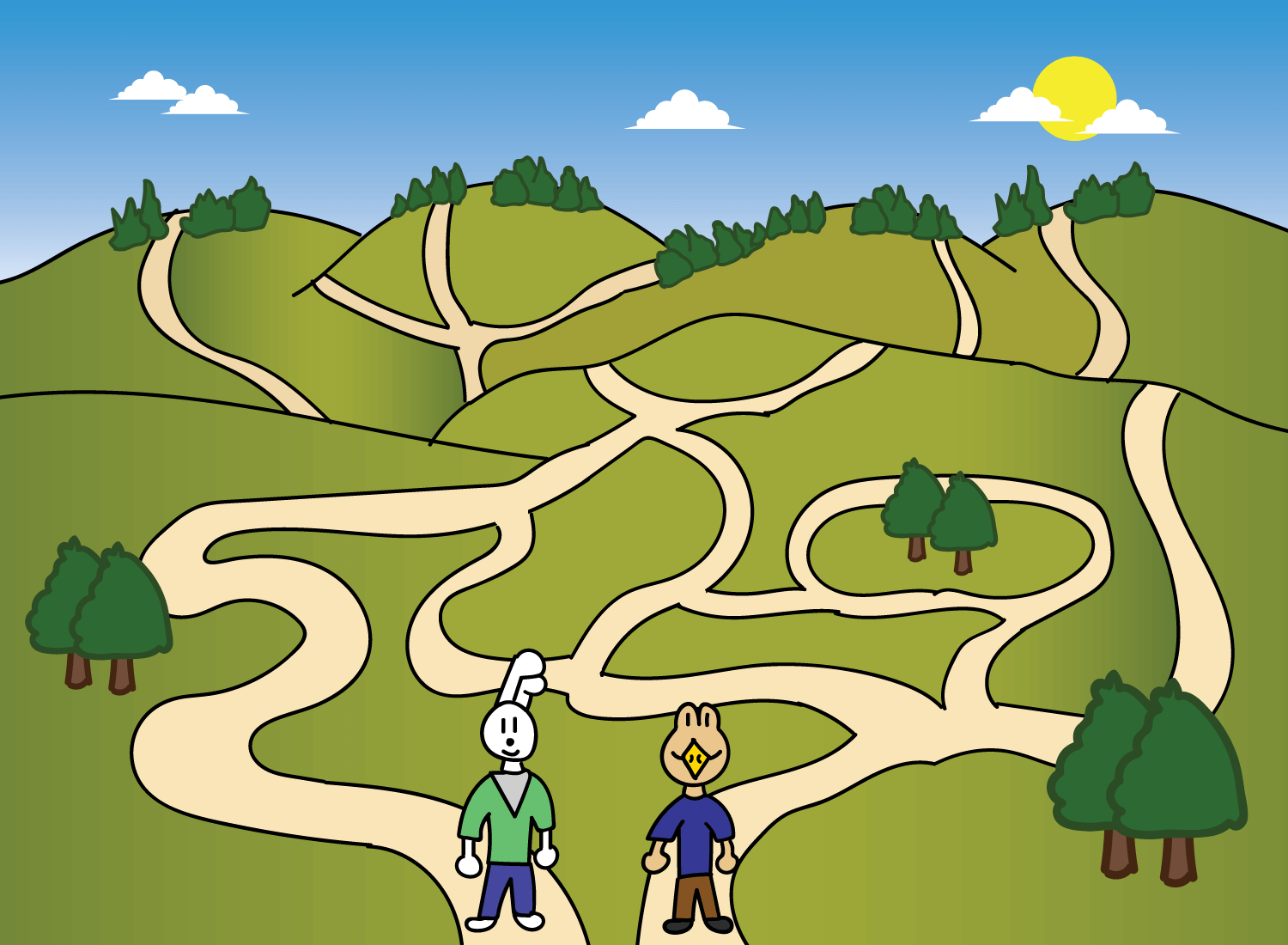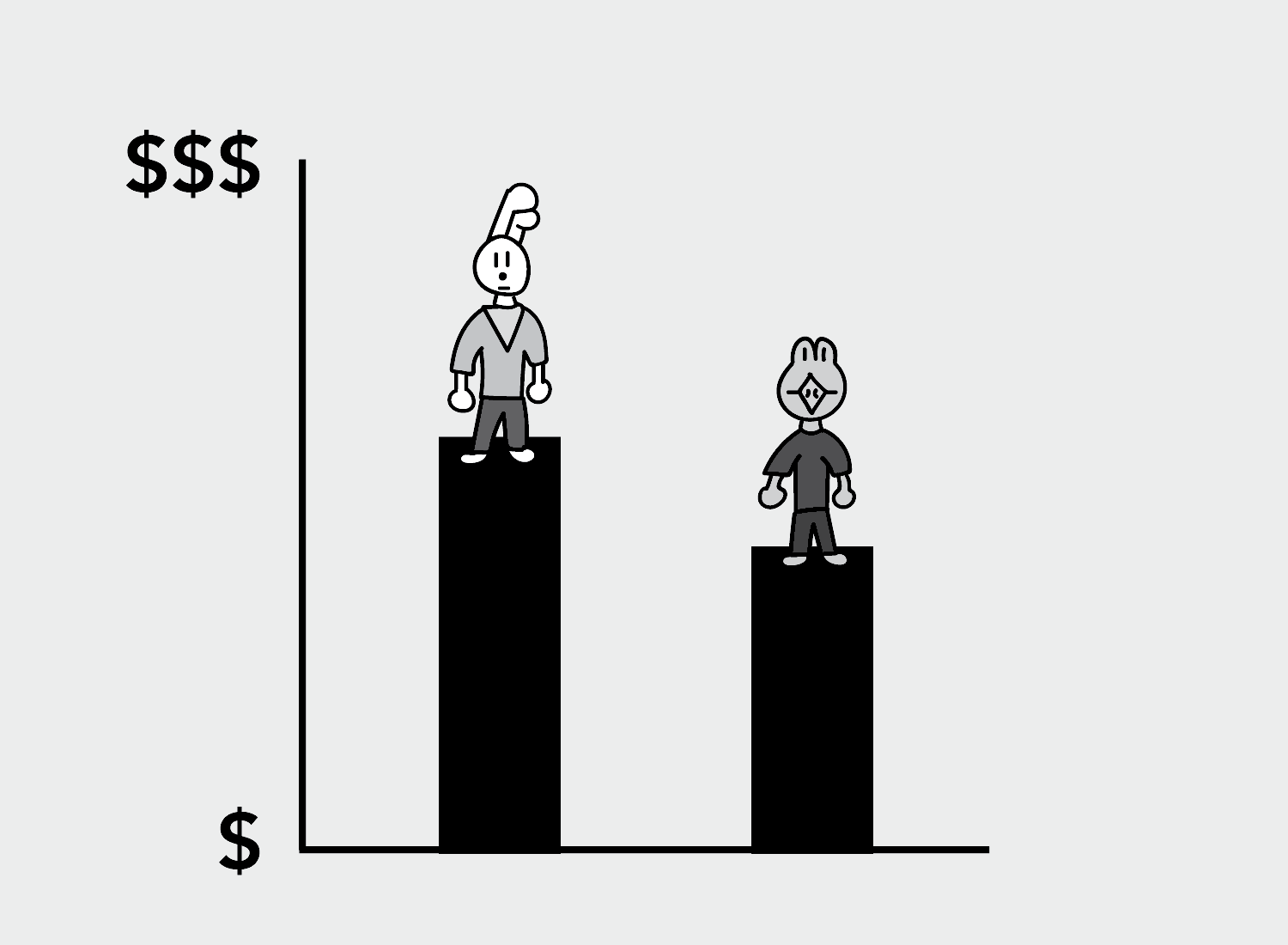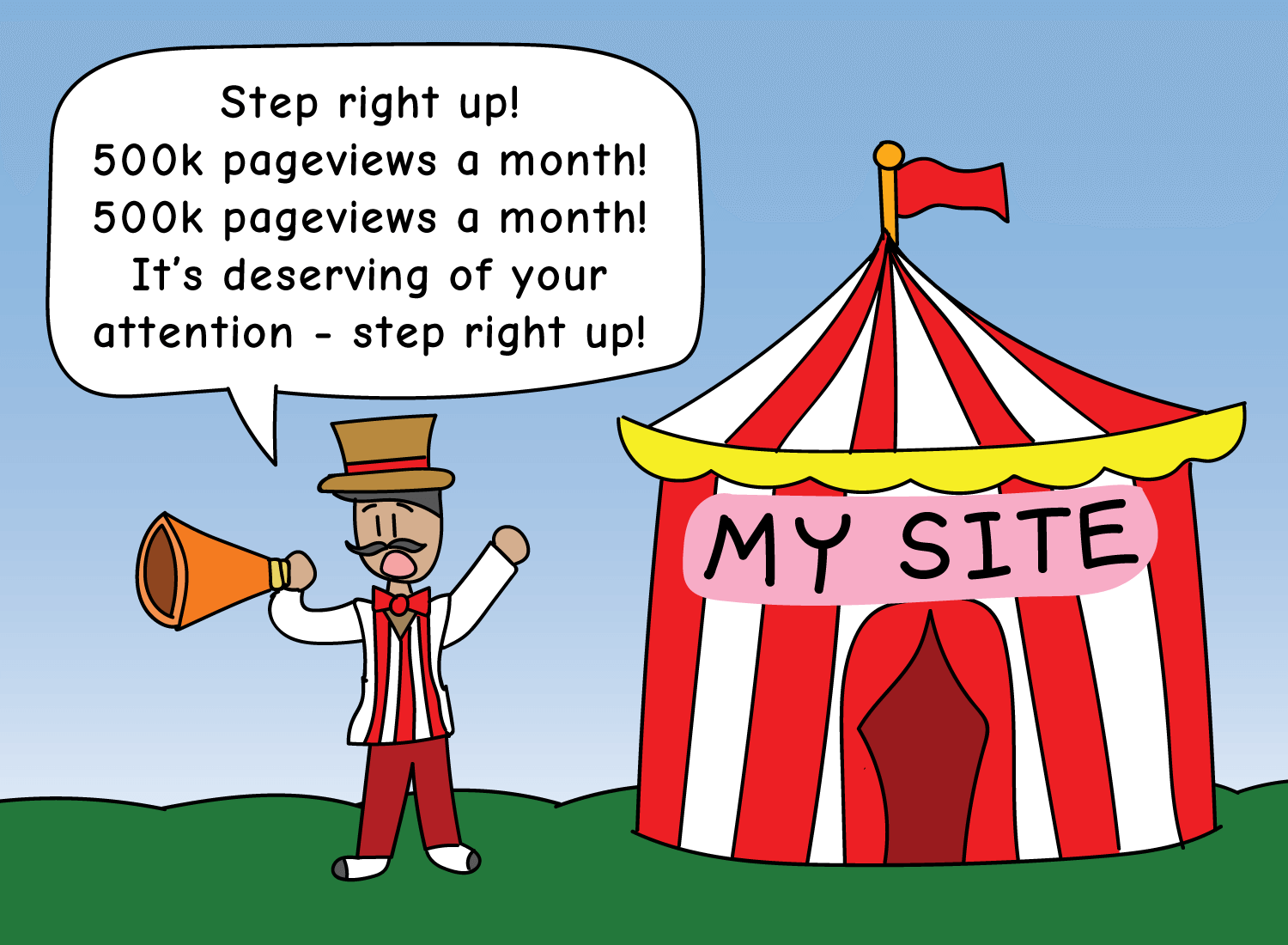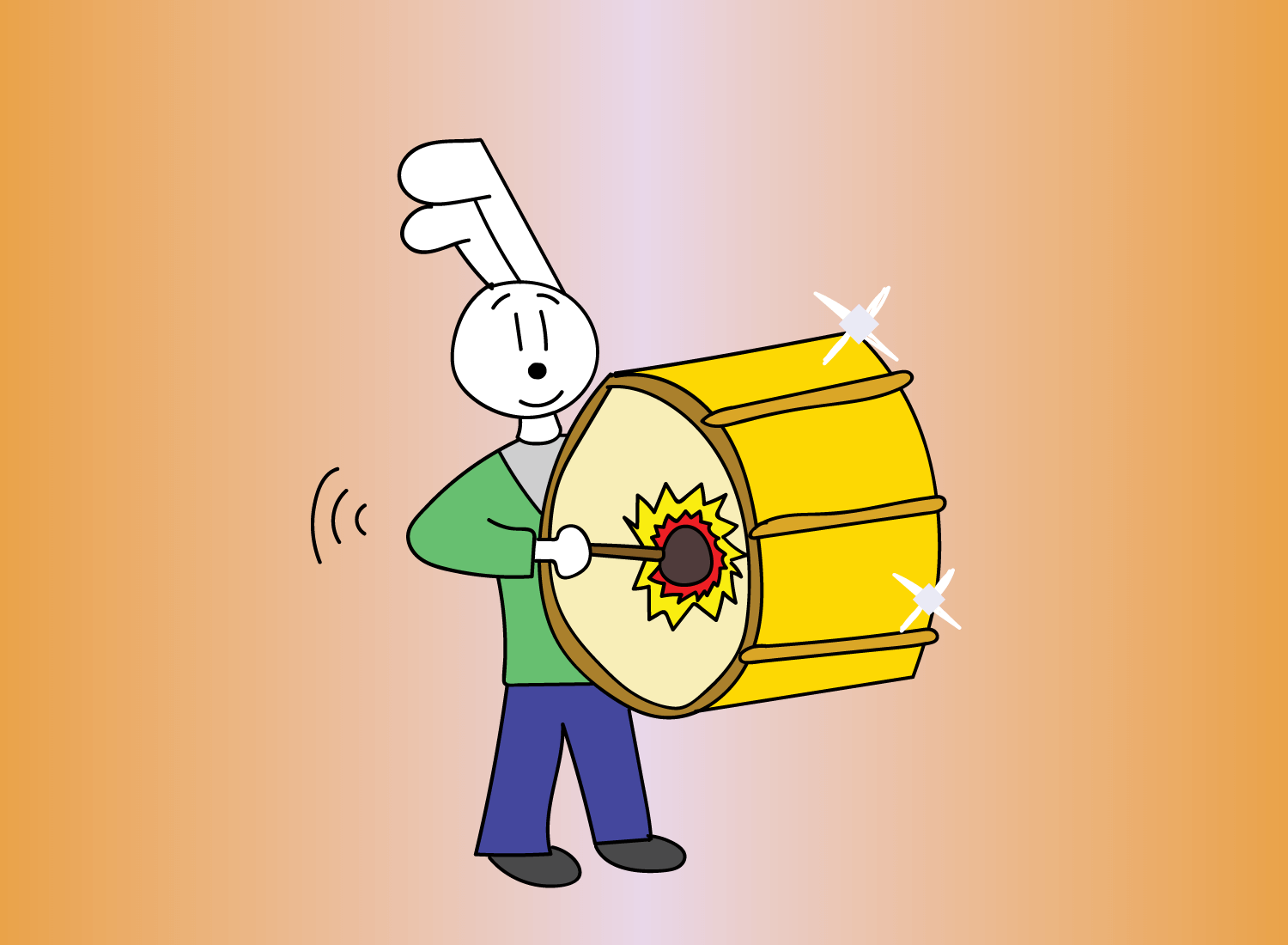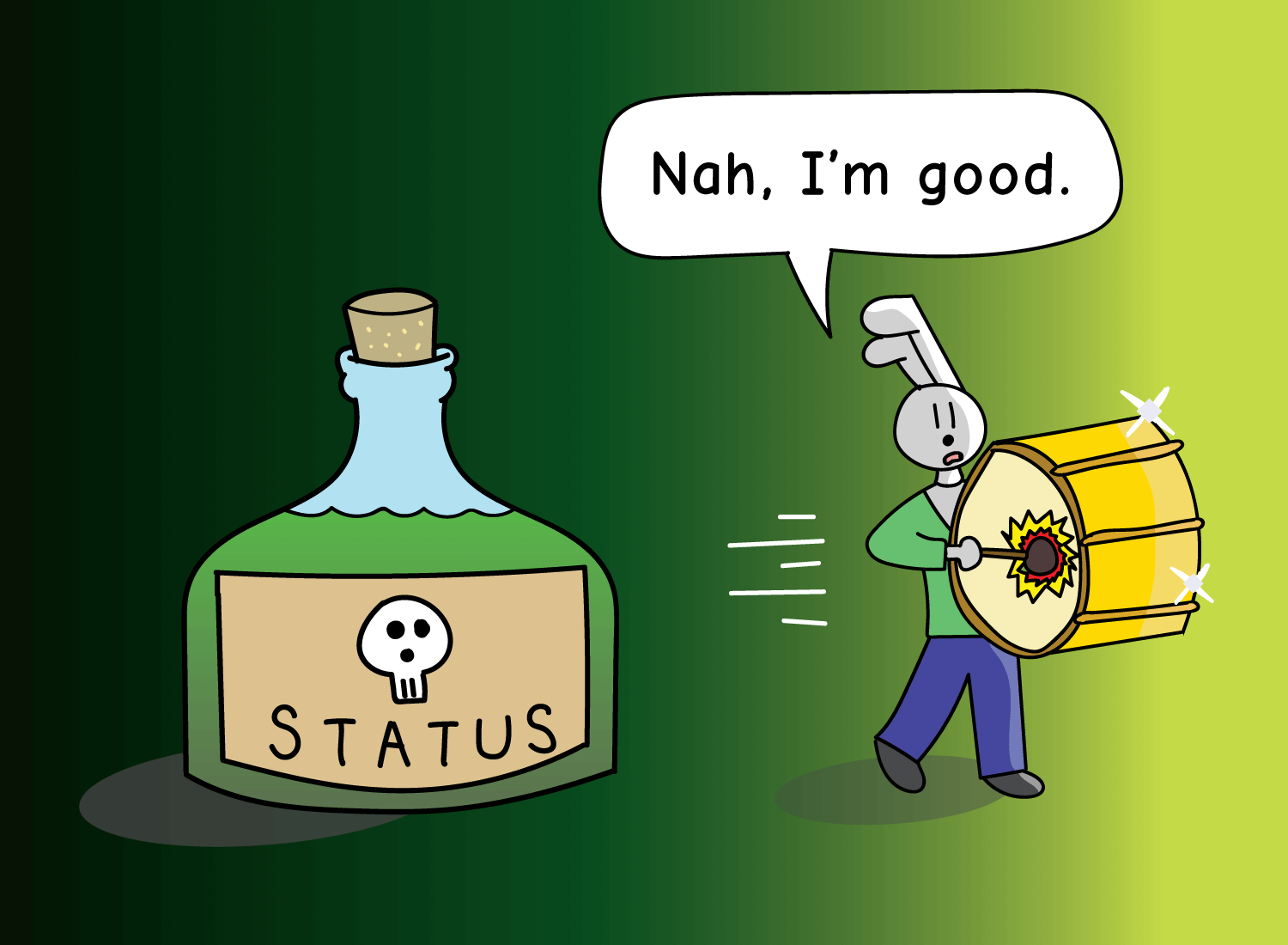Pursue Mastery, Not Status
Progress is determined by how it is measured.
If money is what you desire, then your bank account balance will indicate how secure you feel over time. If fitness is your goal, then the frequency of your workouts will outline your growth trajectory.
For something so complicated as human existence, we’ve done a good job creating straightforward metrics to quantify our various desires.
Diets have calories, careers have salaries. Businesses have leads, phones have speeds.
Measurements give us the valuable information required to track progress, but unfortunately, they also standardize that progress into a universal, almost soulless metric.
For example, two people may have had wildly unique paths in navigating their respective careers…
… but if we use their salaries as the measurement of progress, it washes away all the color of their experiences and reduces everything to a comparable number.
This is the greatest problem plaguing the creative landscape today.
The tools we use to create and distribute our work have democratized the playing field, but they have made us slaves to the metrics of attention. Every blog post has its pageviews, every Twitter account has its followers, and every email list has its subscribers. Each domain wields its standard metric of progress, and by focusing on it intently, we gauge our work not by what we produce, but how it is received and measured.
This quickly devolves into a hierarchical way of thinking because anytime progress is standardized, a status game is reinforced. By definition, standardization makes everyone easily comparable, and this removal of nuance causes us to rank people. If Bob’s work gets more views than Jane’s, then we believe that Bob’s work must be more deserving of our attention than Jane’s. We make the assumption that metrics are strong indicators of quality, and use them to filter our attention accordingly.
This rigid ordering of people’s work is what solidifies status games. And since the desire for status caters to the lowest of our desires, it’s a rather mindless game to play. The rule is simple:
The stronger your metric of progress, the greater it shall be emphasized. This will signal to others that you deserve their attention, because your status has been reinforced by this metric you’ve highlighted.
This is a remarkably effective strategy to use when building an audience, as any play to groupthink will reliably draw in more people. Attention is a scarce resource, so we often rely upon the choices of others to validate where we choose to invest our own. Social proof is magnetizing, even for the most independent of minds.
However, what impact does this have on the mind of the creator?
Well, for one, it often leads to a never-ending game of comparison via shallow standards.
Let’s say you’re a writer, and you tie your sense of progress to an email subscriber count. You go about your day, and you happen to come across another writer that has 10x the number of subscribers you have. The immediate thought that may strike your mind is, “Oh man… what are they doing right that I’m not?” This can hit you well before you’ve checked out their work at all.
The more you peg your work to some standardized metric, the more you use that metric to determine your position amongst others. This leads to pernicious emotions like envy, which arises fiercely when you use one-size-fits-all measurements to paint the entirety of the creative landscape. After all, the easier it is to gauge others’ progress, the greater the tendency for envy to arise.
Status games are fundamentally flawed for this very reason. One’s position on the totem pole is always relative to someone else’s, so if you’re vying for status, you won’t ever be able to truly create things for your own sake. You will always look for someone else to elevate you up this pole, and will seek the admiration and approval of others to justify your position at all times.
Our relentless chase for status (and the showboating of it) is a cancer that masquerades as success. It reinforces the worst incentive structures that humanity has ever thought of, and furthers the narrative of self-interest and groupthink to all those who thirst for it.
Fortunately, there is an antidote to this cancer, and its name is mastery.
Mastery is the quest to improve yourself as an end in itself. Comparisons are not made with other people, but only with prior versions of yourself. You’re not trying to become a better writer, musician, podcaster, etc. to improve your standing amongst others. Rather, you’re doing it to prove to yourself that you can exercise your potential by contributing everything you can to actualize that untapped resource.
Status is obtained by collecting attention, whereas mastery is achieved by refining intuition. Status is always relational, so external validation is a prerequisite to feeling secure. Mastery, on the other hand, is gauged by your unique sense of progress, which can only be derived from within.
By pursuing mastery, you march to the beat of your own drum, while ensuring that the quality of that drum continues to improve over time.
However, this leads to a bit of a contradiction.
How do you know that you’re making progress without the validation of others? If you disregard external opinion, how can you tell that you’re on the right track to mastery? Take the example of a writer who thinks he’s God’s gift to man, but no one ever reads his work. Self-confidence without credibility is often just another way of saying “delusional.”
Well, those who pursue mastery may disregard the need for external validation, but they still accept the power of external inspiration to help guide their work. This difference is important. They don’t need others to approve of what they’re doing, but they will take the best of what others have offered to help shape their personal tastes and preferences.
Of all the assets one cultivates on the journey to mastery, the most important is intuition. Intuition provides you with the ability to discern between what’s good, what’s not, and what has the potential to break new ground… all without the need to listen to any crowd or tribe. It is the force that allows you to gauge your creative progress, all without the need to rely on external measurements to give you that sense of direction.
The best way to sharpen that intuition is to read/watch/listen to the work of those that you believe have already mastered their craft, and to update your model of mastery based on how you interpret their creations. If you earnestly hold yourself to a high enough standard, you won’t be in a situation where you think you’re on the right path while no one cares about what you’re doing. The paradox of mastery is that even if you could care less about status, people will find their way to you since mastery is a gravitating force, which will give you status in turn.
The key here is to continue seeing status for the societal poison that it is, and to resist its allure.
The trickiest thing about status games is that people don’t like to acknowledge when they’re playing them. Or even worse, they don’t even realize they’re playing them, and think they are driven by a false sense of self-improvement instead.
Well, there are a few ways to know if you’re driven by status and the opinions of others:
(1) If envy is a recurring problem for you, that means you’re always gauging your progress in relation to the advertised positions of others.
(2) If you use a metric to gauge what you work on next, then you’re allowing the validation of others to dictate your intellectual interests.
(3) If you base the quality of your work on its performance – and not how you felt while creating it – then you will never be confident in your own judgment.
These are all zero-sum games, and aren’t worth playing with this one life you have. Discard the obsession with metrics. Bury the desire to emulate what works for others. Ignore all that, and be moved by your own curiosities, interests, and pursuits.
Do away with status.
Choose mastery instead.
_______________
_______________
Related Posts
By choosing mastery, you’ve decided to play the only game that matters:
Status is ephemeral because no one lives forever:
A reminder that the pursuit of mastery is not the pursuit of perfection:
